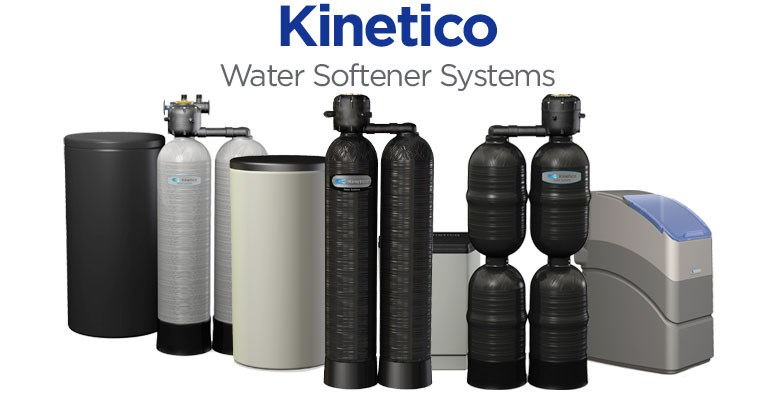Water Softening - Is It The Solution For You?
Whether supplied by the city or a well, you can soften your hard water, making it better for you and your home.

Water softening reduces the calcium, magnesium, and iron in water, making hard water soft. Most people, whether they have municipal water or well water, live in homes with hard water. In fact, an estimated 85 percent of homes in the United States have hard water. Unless an area has naturally occurring soft water, most city water is considered hard. Although some water treatment plants may soften water to some extent, most do not supply “soft” water.
Have Your Water Tested Today To
Determine How Hard It Is
Contact A Kinetico Water Expert Today
Fill out your information below and we’ll have one of our authorized, independent Kinetico dealers contact you to schedule your free in-home water test.
Why does water softening matter?
You may not be aware of how important water quality is in protecting your home and everything your water touches. Even with slightly hard water, you can experience challenges with water-using appliances, like washing machines or dishwashers. You may notice hard water spots on surfaces like sinks and tableware. You may even have challenges with your hair and skin, like dry skin and dull hair. By softening your water, you will reduce hardness minerals that cause scale buildup and hard water spots. You’ll reduce the use of soaps and cleaners, and they’ll rinse away completely, leaving your laundry, skin and hair soft and silky. Water-using appliances will work better and last longer with soft water too.
How does water softening work?
To make sure all the hard water in a home is treated, install a water softener where the water enters the home. As water flows into the water softening system, it is softened through a process called ion exchange. Inside the water softener tanks are negatively charged resin beads covered with positively charged sodium or potassium chloride. When hard water enters the tanks, positively charged calcium and magnesium hardness minerals swap places with the sodium or potassium chloride and cling to the resin beads instead. The water leaving the softener no longer contains hardness minerals and is now soft.
How do you know if you need a water softener?
If you suspect your home is suffering from hard water, it is best to have your water tested to find out if it is classified as hard. During the water test, a water professional will determine how many grains per gallon (gpg) of hardness it contains. When measuring hardness, water with more than 1 gpg is considered hard. Water between 1-3.5 gpg is considered slightly hard and anything over 10 gpg is very hard. To help you better understand grains per gallon, picture an aspirin bottle filled with white aspirin tablets. Each white aspirin tablet represents 1 grain. For each grain per gallon your water is hard, take out an aspirin tablet and set it on the counter. The pile of aspirin on your counter represents the amount of dissolved rock in every gallon of water.
Water Hardness Scale
| Hardness Level | Grains Per Gallon (gpg) Hard |
| Soft | Less than 1 gpg |
| Slightly Hard | 1 - 3.5 gpg |
| Moderately Hard | 3.5 - 7.0 gpg |
| Hard | 7.0 - 10 gpg |
| Very Hard | 10 gpg or more |
An estimated 85 percent of homes in the United States have hard water. Unless an area has naturally occurring soft water, most city water is considered hard.
Next Steps to Have Soft Water in Your Home
If you don’t have a water softener, there’s a good chance you have hard water damage throughout your home. Your water pipes and water heater may have scale buildup, water-using appliances may be less efficient, and you probably notice hard water spots throughout your home. Once installed, a Kinetico water softener can prevent or even reverse some damage caused by hard water.

In order to determine which system is best for your home, you should schedule a water test with your local Kinetico water expert. Once the water specialist knows how hard your water is, they can recommend the water system that is best for your home.
Kinetico offers a wide variety of water softeners to handle both city water and well water. There are a variety of models at various price points to satisfy the needs of small households with little water usage as well as homes with many people and high water usage.
Contact An Authorized Kinetico Dealer To Schedule A Free Water Test
